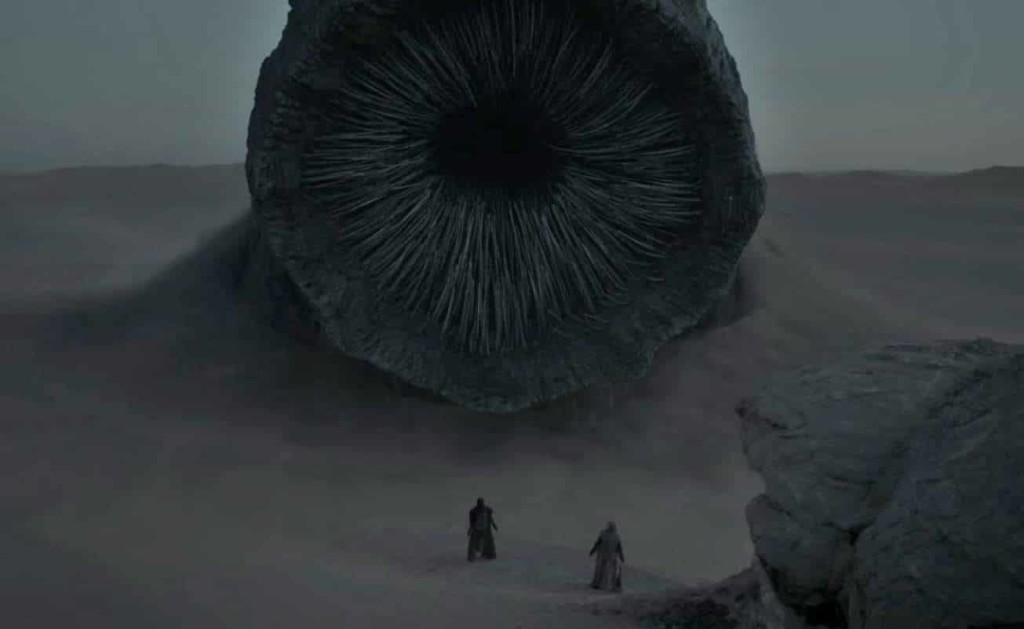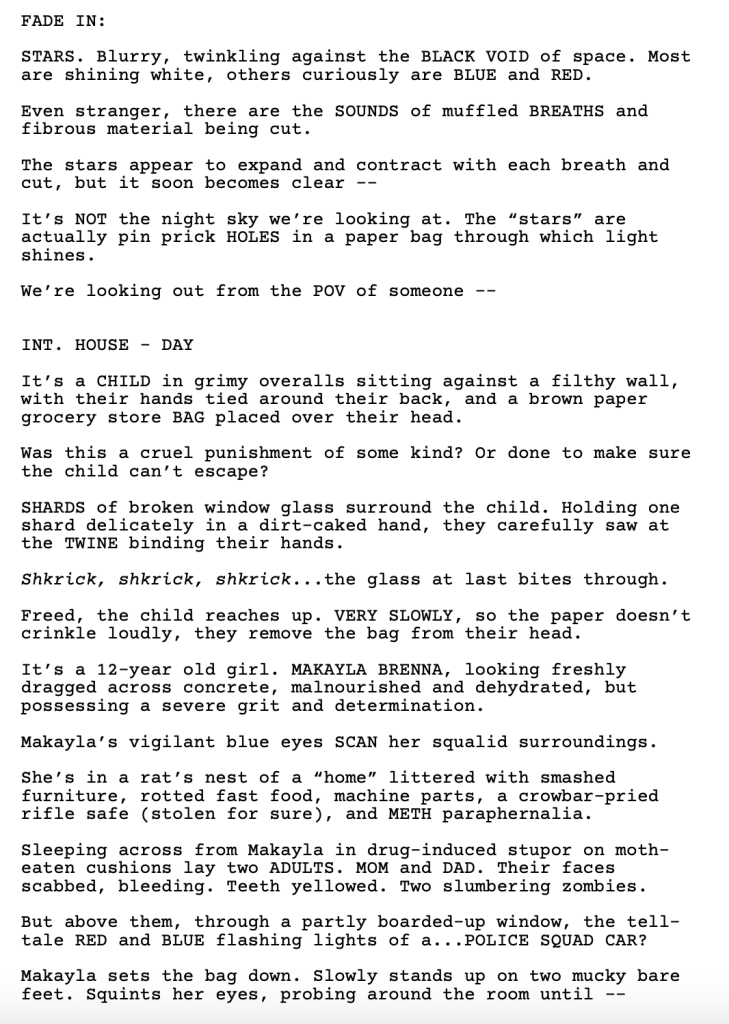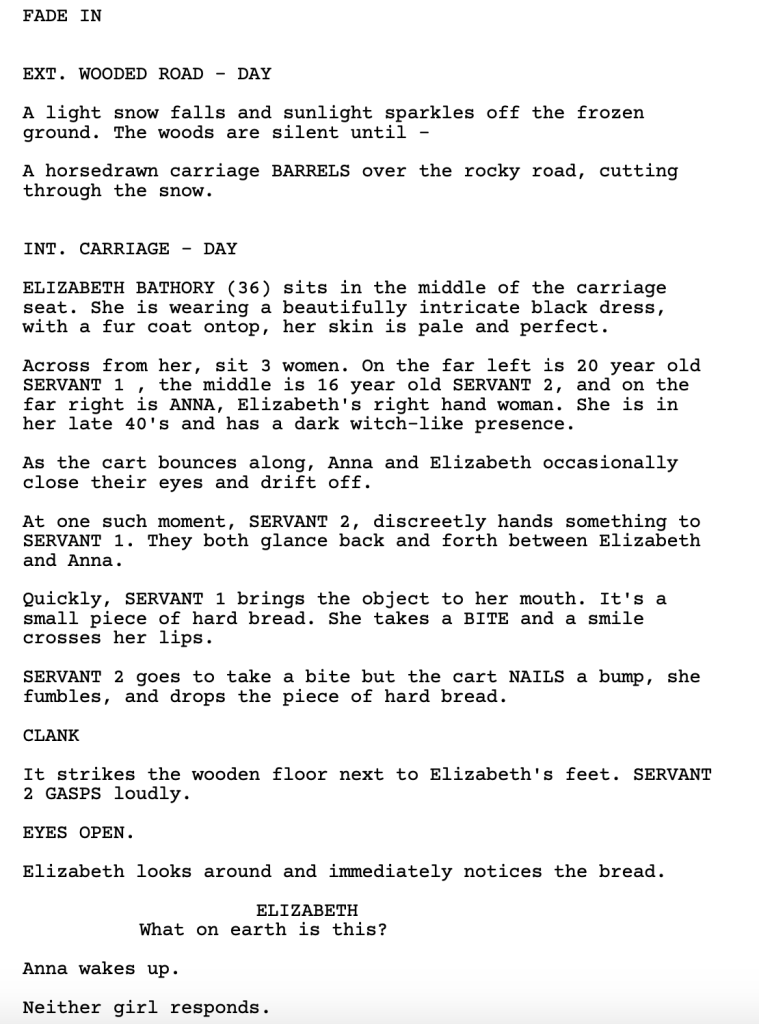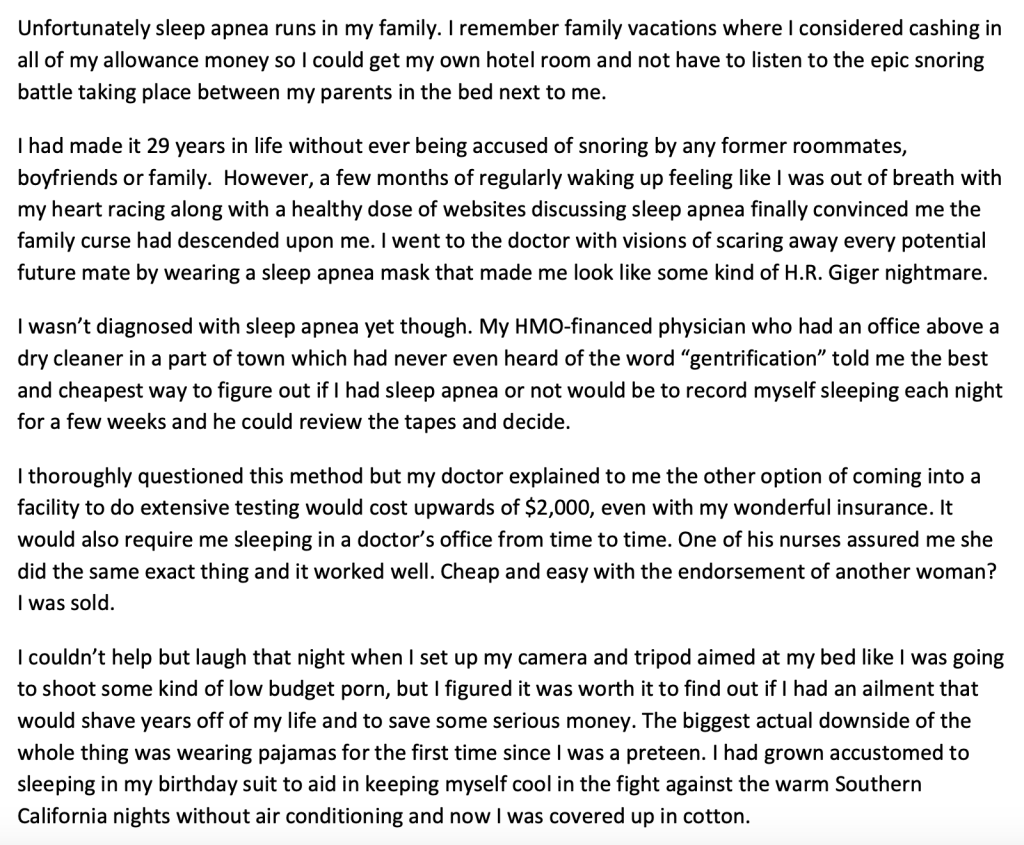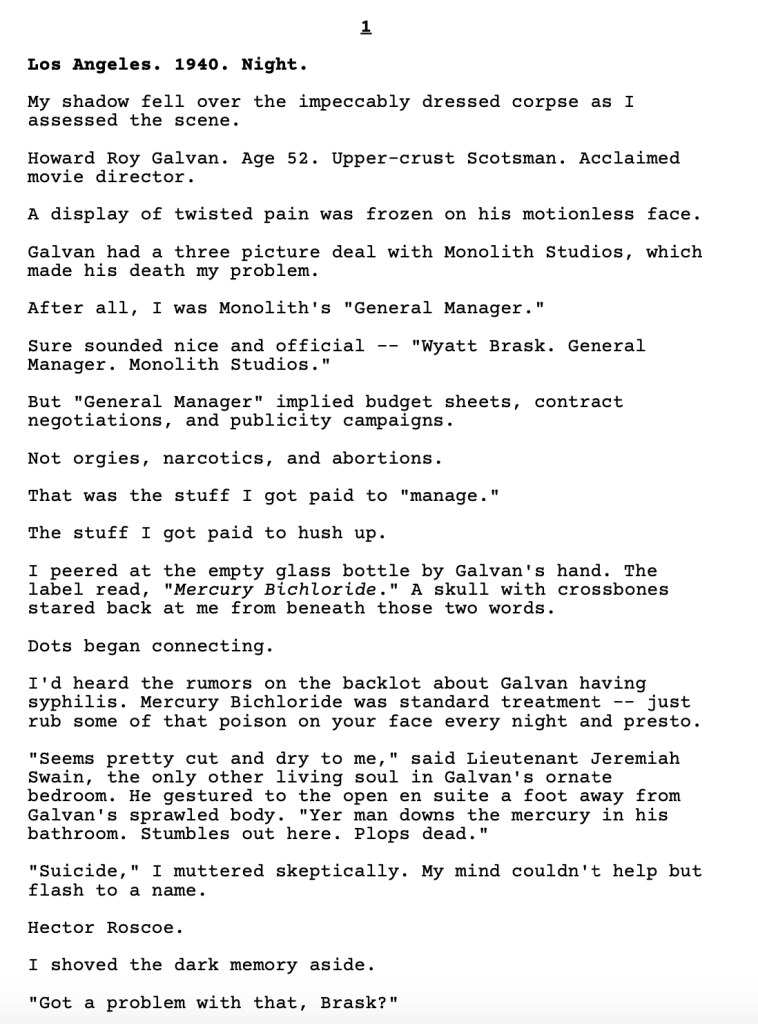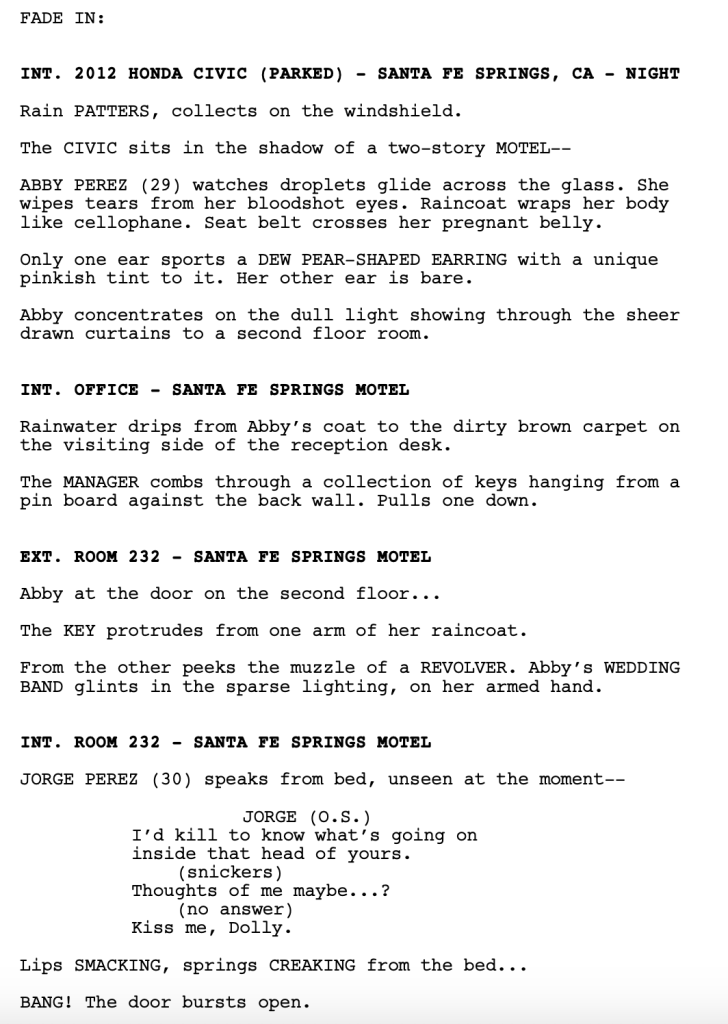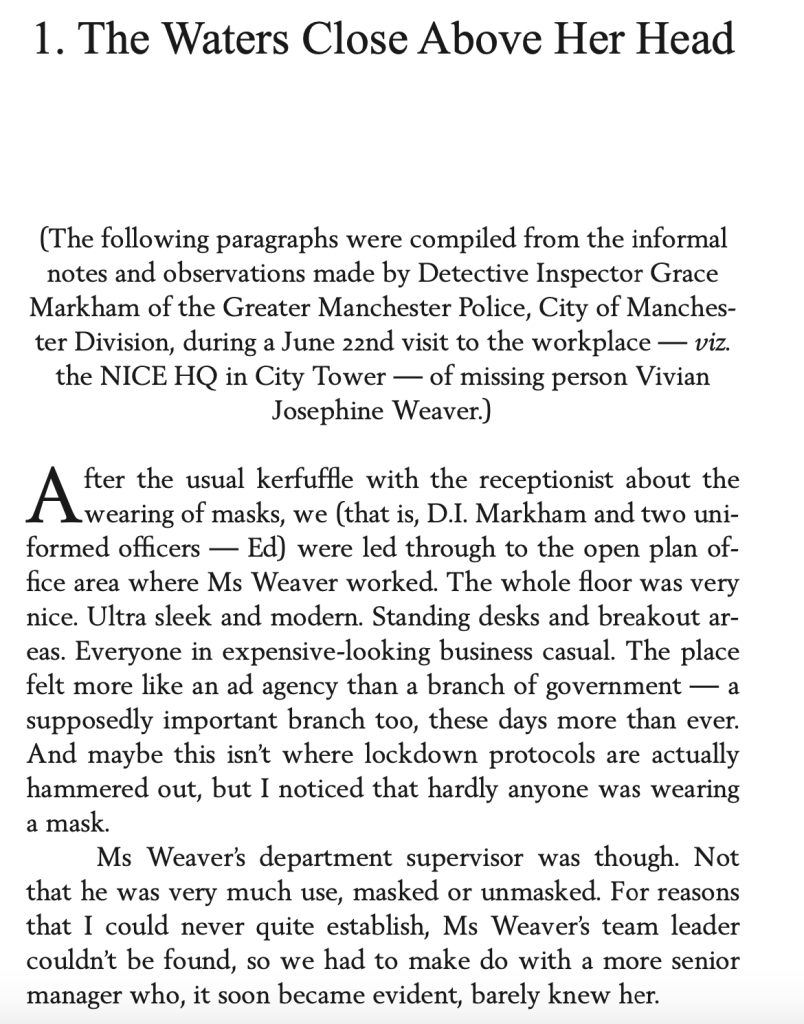Genre: Sci-Fi
Premise: The leaders of a planet journey to a new planet in a quest to gain control of a rare powerful substance called “spice.”
About: Dune is one of the biggest gambles in movie history. A 250+ million dollar production based on a 50 year old novel catered heavily to adults. It is dense and heady, two words studios detest. Nevertheless, they gave the film to “Blade Runner: 2049” director Denis Villeneuve and stacked it with the best cast this side of Once Upon a Time in Hollywood. Oscar Isaac, Timothee Chalamet, Zendaya, Jason Mamoa, Josh Brolin, Dave Bautista. The film was supposed to come out next month. But they were forced to push it to next fall due to the Corona virus. The original adaptation was done by screenwriting superstar Eric Roth. In a strange Hollywood twist, Jon Spaihts left a separate Dune TV series to write the final draft of the feature film.
Writer: Eric Roth and Denis Villeneuve (current revisions by Jon Spaihts) (based on the novel by Frank Herbert)
Details: 134 pages
My oh so conflicted Dune heart.
There isn’t a property I haven’t wanted to like more than Dune. A serious sprawling sci-fi fantasy story is something I should theoretically love. And yet every time I’ve tried to read the novels, I fantasize about getting a lobotomy.
But here’s what I’m hoping with the Dune script. I’m hoping that Roth and Spaihts have stripped away all of that boring muckety muck from the novel so that we get a cool stripped down enjoyable story. I don’t need 50 pages of backstory on how Greta Mogf’flox came to find her love for the art of noxela, that of the space ballet.
Give me a clear story, make it entertaining, and I’m in. Did that happen?
16 year old Paul belongs to a House that, I think, runs his planet. But Paul, along with his father, Duke Leto, and his mother, the prostitute Lady Jessica, only care about one thing – the SPICE! The spice is, essentially, a drug that allows for you to live a heightened life. It makes you healthier, smarter, even supernatural, since some people can use it to see into the future.
The problem is that the spice only grows on one planet – Arrakis. So all the surrounding planets come there to mine it. This is where things get confusing so I apologize if I get this wrong. I believe the people of Arrakis extend an invite to Duke and Paul, to come have a bigger controlling interest in the spice. They’re actually inviting a lot of Houses from neighboring planets there, including the House of Harkonnen, led by Duke’s rival, the 600 pound BARON VLADIMIR HARKONNEN.
Once they get to the planet, everything seems cool, if a little tense. When Duke and Paul learn that some spice miners are stranded in the desert with a potential giant Dune worm after them, they grab a hover ship and go save them. This is where they learn that mining spice is dangerous. At any moment a super worm can eat you up. I guess they like spice too!
Eventually, Paul, Duke, and Lady Jessica, learn that they’re being played by Baron Harkonnen! Harkonnen throws Paul and Jessica out in the middle of the desert while torturing Duke. He wants Duke to know that he’s eliminating his bloodline so that the Harkonnen can be the sole rulers of the spice! Talk about a spicy offer.
Back in the desert, Paul and his mom must avoid giant worms in the middle of the night. They barely survive until their clan’s top warrior, Duncan Idaho (Jason Mamoa), rescues them. They must get back to the city to stop the Harkonnen (along with the evil Emperor’s bloodthirsty army) from turning the planet of Dune into their own personal spice playground. Will they succeed? No one knows except for Timothee Chalamet!!!
I’m going to be straightforward with you here. This movie is in a LOT of trouble.
The issue is simple. It’s boring. At least for the first half of the movie it is. From there, it has some moments but mostly stays boring.
This was always my worry with Dune. I could never get into the book because I’d get bored quickly. The 1984 movie version of Dune was also boring. And now we have this film, which, even with the talent in front of and behind the camera, is stuck drawing from the same source material. So you have to wonder, is this story just boring?
Maybe we can answer that by asking what the screenwriting definition of boring is. Well, boring is in the eye of the beholder, of course. But there are certain concepts and setups and narrative choices that lend themselves to a more objectively boring experience. And Dune checks a lot of those boxes.
One, you have a ton of mythology and world-building. The more mythology there is, the more exposition you’re going to need. That means characters explaining things. The more your characters are explaining things, the less they’re ACTING UPON THINGS. Movies are about character ACTIONS. Not about WHAT THEY SAY. So if you’re doing something that’s keeping your characters from acting upon the world, you’re keeping them from engaging in a good story.
Next, you have a plot that moves slowly. There aren’t a lot of significant plot beats in your script. We cut from scene to scene without much forward movement in plot. Another way to put it is, after reading the tenth scene, a reader shouldn’t feel like they’re no closer to the purpose of the story than after reading the first scene.
Next, you have a lot of SAT scenes (Standing Around Talking). You guys know much I hate SAT scenes. It’s nearly impossible to keep an audience engaged when the only thing characters are doing is standing around talking to each other. And that’s the first 15 scenes of this script. It’s one SAT scene after another.
The only way this is going to work for audiences is if you’re one of those people who really loves deep rich mythologies. To you, it’s fun learning about this world. You don’t need a story to keep you engaged. But that’s a small percentage of moviegoers. Most moviegoers want a story.
Look no further than Dune’s fantasy movie cousin, Lord of the Rings. That film does it right. It sets up the mythology but it establishes the stakes, what the goal is, the journey ahead, how dangerous it would be, who needs to be involved, all very quickly. We then move into the journey, which ensures that the plot is always bopping along.
The first action scene in Dune doesn’t happen until the mid-point and I couldn’t even tell you what it was about. They hear some miners are in trouble. So they race out and save them. Encounter a sand worm. And survive.
Um, okay. That’s a scene. But here’s the problem. When they come back from that scene, EVERYTHING IS EXACTLY THE SAME. The story hasn’t moved forward. All that’s happened is they went off on this little side quest to save some people and now it’s back to bickering with the bureaucrats. Why am I 65 pages in to a 130 page script and I still don’t know the goal of our main characters??
Once Barron Von Fatso starts deceiving Paul and his family, things get a *little* more interesting. But not much. At least someone is finally acting (it’s a villain instead of a hero but, hey, something is better than nothing). But this plotline had its own issues. For example, we’re told from the start that Barron is up to something. So his deception was the most predictable twist ever.
Then, the plot is still static. Everything is happening in this one 50 mile range. Nobody’s going anywhere. We’re all standing around, ordering things, yelling at each other, people are sent out to the desert, they come back in from the desert. Contrast this with Star Wars or Lord of the Rings or even yesterday’s film, Love and Monsters. We’re moving forward in these movies. Dune, this purportedly giant universe, keeps all its characters in this tiny little area and has them play hide and seek with each other.
Ultimately, Dune is doomed by an old Scriptshadow mainstay. Burden of Investment. A high Burden of Investment is when the amount of information the reader is required to remember so outweighs the reward of remembering that information, that the experience doesn’t feel worth it. Or a more simplistic way to put it is, when a screenplay feels more like work than play, you’ve failed.
I will always respect the world-building that Frank Herbert did. I know how long that takes. But you still have to know how to tell a story. I’m not convinced that Herbert knew how to do that. Which is why everyone has such a tough time adapting this material.
[ ] What the hell did I just read?
[x] wasn’t for me
[ ] worth the read
[ ] impressive
[ ] genius
What I learned: Side-quests. Avoid “side-quests” in screenplays. They may be fun to do in video games. But if you’re sending your characters off on a 15 page sequence (12% of your entire movie), it better move the story forward. Here, we get Paul and his father going to save some stranded miners. Sure, it’s an okay scene. Yay for our heroes being heroic. But it didn’t move the plot along one inch. Contrast this with Obi-Wan and Luke going to Mos Eisley. That sequence moves the story forward because they’re trying to find a pilot in order to get to Alderaan. It actually gets them one step closer to their final goal. Maybe that’s why this script is a big fat fail. There’s no goal!!! Or, if there is, it’s buried underneath so much gobbledy-gook that only hardcore Dune lovers have put in enough effort to figure it out.
YAY! A GOOD MOVIE! FINALLY!
Genre: Action/Supernatural
Premise: A young man goes on an 85-mile journey in a post-apocalyptic wasteland filled with monsters to reunite with his true love.
About: This was shaping up to be a big Paramount release until Covid hit. The script comes from Brian Duffield, who’s having a moment. He’s got his first major studio release in Love and Monsters and his directorial debut is coming out soon, Spontaneous (about a world where people spontaneously combust for no reason). I told you about Brian forever ago. Looks like people just now are realizing how talented he is.
Writer: Brian Duffield (and Matthew Robinson)
Details: 2 hours
I have never hidden my screenwriting love for Brian Duffield. At one point – maybe it’s even still the case – I had three of his scripts in my top 25. Monster Problems was one of those scripts. When I saw the trailer for the film (a full eight years after the script was written!) I didn’t recognize the script that I had read. That script was small and meditative and character-driven and clever. This trailer gave me a Monster Problems meets Zombieland vibe. It just felt like a different movie.
But then the reviews started coming in and they were good! Hmm, I thought. Maybe the heart of that way-back-when first draft survived all those studio rewrites. Sometimes that’ll happen. A concept is so good that no matter how much you mess with it, it will always work. Let’s get into the plot.
Joel lives in a bunker five years after a complex series of events led to the world being taken over by monsters. Joel’s a coward. Whereas the rest of the team in his bunker routinely goes out and kills monsters to keep the bunker stocked, Joel’s relegated to making the minestrone. That’s cause he locks up whenever he encounters a monster.
But Joel is done playing the loser. Right before the world fell apart, Joel had fallen in love with Aimee. The two were perfect for each other. But now Aimee is located 85 miles west of Joel in another bunker of people. You have to understand that 85 miles of travel on this monster-infested planet would be a suicide mission for a NAVY SEAL, much less a tiny scared dork. But Joel doesn’t care because he’s lonely and he wants to be with Aimee again.
Immediately after leaving the bunker, Joel is attacked by a giant frog monster hiding in a backyard pool. At the last second, Joel is saved by a dog named “Boy,” who pulls him away. Joel is happy to have company and asks Boy to join him. Boy says “bark!” and off they go.
Not long after that, Joel runs into an older man named Clyde and an 8 year old girl named Minnow. The two are experts in monster survival since they live above ground. Eager to get some tips, Joel asks if he can join them for a while. They’re reluctant, since Joel is basically a monster magnet, but figure he can stay with them until they turn north.
Along the way, they meet some big (and well-designed!) monsters, which reinforces just how crazy Joel was for going on this journey. The two eventually grow a liking to Joel and ask him if he wants to come north with them instead, where he’ll be safer. But Joel doesn’t hesitate. He has one goal and one goal only – get to, and be with, his soul mate, Aimee.
Before we get into the delicious details of this film, let’s talk about that title change (since we just had a big article on titles last week). “Monster Problems” to “Love and Monsters.” Which do you think is better? Personally, I don’t think it’s close. Monster Problems is a much better title. It’s both edgier and more fun.
Love and Monsters feels generic and try-hard. As in, “Please like this movie.” My guess on why they changed it cuts deep into the DNA of how studios think. Studios want you to have a good time at their movies. Good times means more money. So their inclination is go with titles that have a positive slant. “Monster Problems” has a negative connotation. “Love and Monsters” is more upbeat and positive. What are you gonna do? Studios are always going to be studioing.
This studioing continues into the very first scene. In the script, Duffield gave you the pieces to the puzzle about what’s happened to the planet and lets you put them together yourself. Paramount lays out exactly how we came to be dominated by monsters with an in-depth narration accompanied by fun animated drawings. Normally I hate this kind of thing as it strips the mystery out of the world before the movie’s even begun. But when it’s done well – the animation is both fun and funny – it can work. And Love and Monsters pulls it off. Actually, it was while watching this opening narration that I knew the movie would be good. You get a feel early on if a film is working or not. The humor and editing and animation all came together nicely so I knew I was in good hands.
Another change they made was to start our movie with a dozen characters living in a bunker as opposed to just Joel. One character works when you’re going for something more indie and edgy. But if you’re working in the studio film space, they’re going to want more characters cause they’re going to want everything to feel bigger. Duffield was able to retain the core element of the hero though – his loneliness. You could argue that this version sold the loneliness even better because nothing’s lonelier than being around a bunch of people that you don’t connect with.
Paramount goes all in with the on-the-nose storytelling when it then gives us a flashback to Joel and Aimee making out in a car right before all of this happened. That’s right. We get a FLASHBACK! Booo, flashbacks evil! Flashbacks are for loser screenwriters who don’t know how to write!
In the original script, not only was there no flashback but Joel and Aimee had never met in the real world. He only knew her from the ham radio in his bunker. This was a big change so why did they make it? I suppose the argument is that if Joel and Aimee met and fell in love beforehand, both the motivation would work better (that he would brave sure death to get to her) and the connection between the characters would be stronger in general. I don’t think this was necessary but it wasn’t a bad thing.
Here’s the little secret I occasionally share with everybody here at Scriptshadow. IF YOU GET THE CHARACTERS RIGHT, YOU DON’T HAVE TO ACE ANY OF THE OTHER SCRIPT TESTS. Joel is a strong character. Aimee is a strong character. Therefore, it would’ve worked either way (them knowing each other beforehand or only meeting on the radio). I guess this version creates a little more of a “connectedness” in the story.
Another reason this movie works so well is that it’s a classic formula. You send a guy out on a journey. That’s it. From there, if you’re smart, you add GSU. Goal – Get to his girlfriend’s bunker. Stakes – True love is on the line! And while the script doesn’t have traditional urgency, urgency can be replaced with a timeline and constant danger. We know it takes 7 days to get to the bunker. And the whole time he’s on this journey, he’s in danger of being killed by monsters.
The whole idea with urgency as a storytelling device is that it creates a sense of forward momentum. We feel like things need to happen NOW. But if you create a scenario where your hero is always being chased by something – whether it be a monster or the cops – the audience is tricked into that same mindset. That we’re “running out of time.” So that’s a trick you can use if you don’t have the perfect ticking time bomb for your movie.
What’s unique about this script-to-screen is that it’s the opposite of what usually goes down. In almost every screenplay development situation, the studio is telling you to cut things down. Less car chases. Less CGI set pieces. Less glitz and glamour. It looks like they told Duffield to do the opposite. More more more. Whatever your big nerdy ideas were for the script when you never thought it would get made, let’s include those! In that sense, it’s an outlier.
But, hey, I gotta give it to everyone involved here. They somehow took this small little quirky idea and made it into this giant movie yet still retained the heart and soul of that script, which was so good. This movie made my weekend!
[ ] What the hell did I just watch?
[ ] wasn’t for me
[ ] worth the price of admission
[x] impressive
[ ] genius
What I learned: Here’s one of the most confusing things for aspiring screenwriters. Hollywood movies embrace on-the-nose storytelling. That’s why we get the opening narration here. And that’s why we get the flashbacks with Joel and Aimee. They do this because they want everybody to “get it.” Not just seasoned moviegoers but 12 year-olds too. The irony is YOU DON’T WANT TO WRITE YOUR SCRIPT THIS WAY. You want to write more subtle, like Duffield’s original draft. Your audience for a screenplay does not include 12 year-olds. It’s readers, agents, and producers. So be subtle when you’re writing movies. On the nose will come when your movie gets made.
You’ve got your bloody fangs out. Savoring the sweet succulent flesh of a fresh batch of Halloween Showdown enchiladas. This time with a twist! OOOH-OOOH-AH-AH-AH! Short stories ARE ALSO ELIGIBLE FOR THE MADNESS. Hollywood keeps buying these things. Well, Scriptshadow has finally listened. The controversy surrounding this decision has been PLAGUING the comments for months. I’ve had to ban at least two hundred people! That’s how dramatic this showdown is going to be.
I also received tons of entries. Too many entries that had to do with people getting in cars/staying at houses/getting jobs and then realizing someone else at that location was secretly a demon or a monster. That was literally every 6 out every 10 entries. I was trying to find stuff that had a little more creativity to it. I only have one caveat for complaining in the comments for picking one of the below entries over yours. Please make your argument with plenty of Halloween puns. Thank you.
If you haven’t trick or treated at the Amateur Showdown house before, here’s how the pumpkin is carved. Read as much of each screenplay/story as you can, then vote for your favorite in the Comments Section. Voting closes on Sunday night, 11:59pm Pacific Time. Winner gets a revieboo next Friday. If you have ideas on what the next Amateur Showdown genre should be, let me know in the comments.
One last thing. A shout out to Magnus, who EASILY had the best concept of all the entries. His script was titled Shalloween and here’s the logline – When all the hottest girls in a small town get slaughtered by a masked serial killer, a social media influencer obsesses over why she’s not hot enough to murder, and starts looking for an alternate explanation for the killings. How great is that? The problem? First two pages I read were not good. Maybe you guys can get in there and help him out. Basically, my advice is ‘write the script.’ Stop trying to be clever. It’s a good premise so it doesn’t need you to dress it up with a whole fancy way of telling the story.
Six entries this month. GOOD LUCK!
Title: Deep
Genre: Horror/Thriller (Screenplay)
Logline: Trapped on a remote North Dakota farm in the middle of a bone-chilling winter storm, a deaf 12-year old girl must try to survive her murderous foster parents, who’ve been influenced to kill by a mysterious radio signal from deep space.
Why You Should Read: Deep came about from my desire to write a story putting the most vulnerable type of person in the most terrifying situation I could imagine. A very early draft of Deep made this year’s Page Quarterfinals. After feedback, it’s since gone through a strenuous rewrite. At 87 pages, and tightly structured, it’s a lean, electrifying read. Looking forward to any critiques from the Scriptshadow Community.
Title: An Innocent Bloodbath
Genre: Period Horror (Screenplay)
Logline: Obsessed with beauty and terrified of aging, the recently widowed Countess Elizabeth Bathory will stop at nothing to preserve her perfect skin, leaving the servants in her castle absolutely horrified.
Why you should read: The story of Elizabeth Bathroy is terrifying, and she is perhaps the most notorious serial killer in history. What makes it even more unnerving, is that her victims were all young women. To date, I’ve yet to see a depiction of Elizabeth Bathory that I felt was true to the original story. Sure, Daughters of Darkness was great, but it had its own spin on it. I wanted to write a horror film, as close to the original tale as I could. Also, what made it difficult was I didn’t want to write a torture porn flick. This is not an Eli Roth movie. I’m going for atmosphere, the fear of the unknown, the fear of losing your loved ones, the fear of being snatched away in the dark of night never to be seen again, all the while following a mad woman’s quest for eternal beauty.
Title: Good Night’s Sleep
Genre: Horror (Short Story)
Logline: A young woman records herself sleeping one night and discovers a sinister presence is sleeping in her bed each night.
Why You Should Read: You should read this story because it’s a quick, but layered horror story that twists the found footage genre into a classic scary tale that wraps itself up in a nice bow (which is very hard for me to do) and reads almost more like a short film than a literary-language heavy short story.
Title: Fade Out
Genre: Horror/Noir (Short Story Screenplay)
Logline: Los Angeles, 1940 — a man paid to cover up Hollywood scandals must confront a supernatural killer hellbent on revenge.
Why You Should Read: “Fade Out” was born from two fascinations: the slasher subgenre and the sordid secrets of Golden Age Hollywood. Wanting to put a new spin on the tried-and-true “masked killer” formula, I realized I had never seen a period slasher flick before. “LA Confidential” meets “A Nightmare on Elm Street” struck me as a fun premise. Although I had an outline for a feature-length screenplay, I decided that condensing the material into a short story would act as a good “proof of concept.” Thanks for reading!
Title: Dolly
Genre: Horror (Screenplay)
Logline: A lonely teenage boy finds companionship in a sex doll, only to discover that it is possessed by an unsettled soul that will do whatever it takes to keep its young owner’s attention all for itself.
Why You Should Read: I may have dropped “something” when this was conceived of at the onset of quarantine…in the throes of my trip, I unloaded the idea on my roommate – a sex doll comes to life to possess the love of its young owner at all costs…or maybe I just said killer sex doll.
Unlike previous iterations of sex dolls on film – LARS & THE REAL GIRL among others – DOLLY comes at the idea from a strict horror perspective, falling more within the wheelhouse of CARRIE and CHILD’S PLAY. The script explores the darker edge of growing up, especially in the age of instant gratification.
DOLLY was a weirdly cathartic experience for me; it had me exploring moments of growing up, albeit through a hyper-stylized way. It became an exploration of the feelings and urges that sometimes overwhelmed my better judgment. For such a crazy premise, the story drifted into very real territory.
My biggest hope is that you find the fun (maybe even a little bit of heart) within DOLLY and it leaves you with some very memorable set pieces to haunt your thoughts this Halloween season.
I hope you find the above interesting enough to crack open the script. If not, thank you for even the momentary passing thought. I appreciate all notes, good and bad and everything in-between.
Thank you again for giving DOLLY the time of day.
Title: My Compassionate Heart
Genre: Horror (Short Story)
Logline: During Covid lockdown in the UK, a lonely young woman falls in love with the restless ghost of a murdered sailor.
Why You Should Read: I work as a reporter in the UK. If you read the papers and take any notice of bylines, you might even recognize my name, but I’m not going to reveal it here, because the source materials for this document consist of confidential files that were exfiltrated from the Police National Database (PND) during their recent massive (2~4TB) data leak. A small number of these leaked files were sent to me anonymously by an unknown party. As far as possible, I have verified that both the files and their contents are genuine, accurate and true. I have chosen to share this information because I believe that disclosure of the strange events surrounding the disappearance of Vivian Josephine Weaver falls clearly within the wider public interest.
A few weeks ago I read the Black List rom-com that sold to Sony, Voicemails for Isabelle. It was easily the best rom-com I’ve read in years. The dialogue, in particular, was great. I said in that review that I would leave a voicemail for Leah and, what do you know, she replied! So we got on the phone and talked all things “Isabelle.” Leah was really forthcoming with her answers, which led to a great conversation. A little background here. Leah was an actress first. So you’ll see us referring to her acting throughout the interview. I also wanted a lot of dialogue advice so I asked a bunch of dialogue questions. Enjoy!
CR: The state of rom-coms in the last 15 years has been pretty bad. I think it’s because the genre is so inherently formulaic. How do you, Leah, approach the genre in order to stand out?
LM: I didn’t really know what I was doing and, in a lot of ways, that was my saving grace. Not just in rom-coms but in writing. I have no training in writing. And I agree with you. They’re so formulaic. I’ve seen a lot of rom-coms so I know the structure I have to follow in order for the audience not to get angry with me. But on some level I try to infuse it with some story about humans and sisters – my sister is my life and my love and my biggest supporter.
CR: And the inspiration for the story, I’m assuming.
LM: Yes, so what happened was I moved to LA to become an actress and my sister stayed in New York and I would leave these long voicemails to her late at night hoping to make her laugh. Or detail a terrible date. And in a lot of ways they became these confessional moments for me. The story was born out of that. I don’t know how to “write a rom-com.” All I focused on was telling my story. (for those curious, Leah’s sister is alive and well, so no tears need to be shed today)
CR: You reference a lot of rom-coms in the script so I think you know the genre better than you’re giving yourself credit for.
LM: Maybe! Yeah, I guess I do. I kinda feel it in my bones a little bit. Like I know at a certain point, “She needs to lose the guy here.”
CR: So your writing is instinctual?
LM: Yeah, that’s how I’d put it.
CR: How did you sell the script to Sony?
LM: This is going to be a long answer because it started back when I wrote and produced my first indie film, M.F.A. (a film about a rape at college). Cause I was running around asking everyone “How do you get an indie film financed?” And I would read all these sites and nobody would give me any concrete answers. So I would ask friends, “How do you do this?” And they would say, “Oh, you’ll find people,” And I would say, “But where are the people?” [laughs]
So I bought all the “How to Finance A Film” books and they weren’t very helpful either. None of them gave you a clear path on what you were supposed to do. Finally, I told everybody I knew that I was making a feature film and did they know anyone who’d be interested in investing in it. It was a slow process. Lots of dead ends. Lots of ‘this person leading to this person.’ But little bit by little bit we cobbled it together and shot it for $250,000, which included all the money I had at the time. The film got into South by Southwest and that gave me some legitimacy as a writer.
CR: Wow, you went all in.
LM: [laughs] I went all in in a way I do not recommend. Whenever filmmakers tell me they’re going to max out credit cards to make their film, on some level, I’m like, “Yeah! Do it or die!” On another level I’m like, “Self-care is important. Don’t do what I did.” [laughs] Because I came out of it so destroyed. I mean, in the midst of making that movie I was in so much pain because I was not eating. I was running on adrenaline. I ended up at the urgent care center. Anything that went wrong on the movie I took so personally in a way that you shouldn’t. I just want to say to people that I don’t think you should have to kill yourself for a movie.
CR: Yes, killing is bad.
LM: Right, and from that, I got my first literary agent. As well as my literary manager. And I got sent on the water bottle tour. Which is you go and you meet every single production company who liked your movie. And they’re all like, “What do you want to do next?” And I didn’t understand what I was doing at any of these places. I didn’t understand that I was supposed to be [laughs] pitching things. So I was sitting there thinking it was a friend date. I’m chatting and drinking my free coffee. So I said, “I don’t know what I wanna do next. Something cool I hope.” And I’m like, “Are you going to hire me now? What is happening?” And they all said, “Well, we’ll stay in contact.” And I was like, “Cool, we’ll stay in contact. Whatever that means.” [Carson laughs]
So during that tour, I met a producer named Becky Sanderman and we became really good friends. Becky pitched a TV show to me called, “What The F*ck, Glenn” about a mother dealing with her husband committing suicide. So I wrote that and that got me connected with Becky and Escape Artists, who are on the Sony lot. That led to me writing a father-daughter zombie project. And, for the first time in my life, I had a million voices giving me notes and I didn’t know how to handle it. Cause keep in mind, I was the only voice on M.F.A. I got so frustrated by the process that, in an act of rebellion, I wrote Voicemails for Isabelle. And one day Becky asked me if there was anything else I was working on and I told her about Voicemails and she said, “You are sending that to me as soon as you finish it.” And that’s what led to Sony buying it. I know that’s a long answer but I also know how frustrating it is for writers trying to understand how something gets sold so I wanted to be as detailed as possible.
CR: I’m not surprised it sold. I think you have a really strong voice, particularly your dialogue. Can you tell me your general approach to dialogue?
LM: My acting teacher John Rosenfeld always said, “Your characters are not as emotionally articulate as you.” People are not emotionally articulate most of the time. If you know that a character is heartbroken or sad, that doesn’t always come out as “heartbroken” and “sad.” People will try to play every emotion before they do that. They will get angry. They’ll be mean. They will turn it into a joke. So I very rarely play act a true darkness. We’re always trying to avoid that as humans. So a lot of times in my script where something sad has happened, there’ll be a scene that’s funny. I don’t do a lot of, “She cries and he holds her.” I don’t find that in my own life very often [laughs]. So I don’t write it.
Actors are also trained to observe people. So I’m always watching and listening and if I hear a good line, I write it down and make sure it gets in a script. For example, the other day a friend and I were looking at places to eat and we found this one restaurant that had these delicious looking noodles and he said, “Mmm, my mouth is hard.” I thought that was so funny. So the next time I have two characters in a food situation, they’re not going to say, “Mmm, that looks delicious.” They’re going to say, “Mmm, my mouth is hard.”
CR: That works in a comedy, obviously. But what about when you’re writing M.F.A., which is about a campus rape? How do you keep the dialogue interesting when you can’t depend on humor?
LM: Good question. I try to subvert familiar situations when I can. The scene that everybody brings up in M.F.A. is when the lead character, who’s been raped, goes to a “Feminists on Campus” meeting hoping for support. But when she goes to this gathering, she doesn’t get this outpouring of emotion or comfort. Instead, the girls were like, “Oh my God. Hash Tag Feminsim!” “We should do a bake sale.” “Oh yeah, we should provide a nailpolish where if you stick your finger in a drink it shows you if it’s been drugged.” “Ooh, good idea!” So it goes against what the main character is looking for in the scene and what the audience is expecting from the scene.
CR: What do you think the difference is between good and bad dialogue?
LM: Bad dialogue is often too literal. Too robotic. It has too much information. What is that word called? I have this list of words I always have to check.
CR: Exposition?
LM: Exposition! I’m a writer. I swear. That’s the thing that kills me. When there’s too much exposition. When a writer is doing too much telling and not enough showing. I’m such a big believer in show don’t tell.
CR: What do you mean by that because if you’re showing, you’re not writing dialogue.
LM: For example, if someone is heartbroken, they shouldn’t say, “I’m heartbroken.” If she’s in the room with the guy who broke her heart, you want to focus on how she won’t make eye contact. Or the guy doesn’t make eye contact. That sort of thing. No character who’s in pain should ever have to say that they’re in pain. We should be able to feel that through their actions.
I have this writer friend I’ve been helping and his characters explain everrrryyyyyyyy-thing. I’ve told him you need to cut all of this waaaaaaaay down. What isn’t being said is far more interesting than what is being said. Humans rarely talk about their emotions. They avoid emotions.
CR: Not a lot of writers are blessed with a natural comedic ability but they’re still required, at times, to write comedic scenes. How does one write funny dialogue?
LM: I don’t know. I tend to go with “TMI.” The things that would be so awkward if you said them but you’re still thinking them? Having your character say those things has always been a guide for me. A lot of times my characters are sort of irreverent and say the wrong thing. They very rarely say the right thing. If you could’ve done it over, you would’ve said it better. But there’s so much humor in the person reaching for the right thing and coming up short. There’s this great quote: “Funny people are just really observant.” I think that’s true.
One of my favorite movies is Little Miss Sunshine and my favorite scene is when the main girl says, “Grandpa, am I pretty?” And he says, “You’re the most beautiful girl I’ve ever seen in my whole life, I’m completely in love with you. And it’s not because you’re intelligent, it’s not because you’re nice, it’s completely because you’re so beautiful.” And I love that so much because it’s a little inappropriate for a grandpa to say to his granddaughter. And you’re not supposed to tell a little girl that her heart and her intelligence do not matter. But it’s so true and so honest that that’s how he handled the question. That is the kind of s*#t I want to write.
CR: My favorite scene in Voicemails was the meet-cute scene between Jill and Tyler. What I noticed about that scene was that the characters rarely said what you expected them to. They always seemed to say the opposite of what they were supposed to say. How did you approach that scene?
LM: I’ve never told this to anybody. When I got to LA as an actress, I started writing things secretly. I didn’t know how to write a screenplay but I understood how to write a scene. So I would write these little scenes. And I had written that meet-cute scene during that time. It wasn’t inspired by anything other than my own life – moving to Hollywood. Trying to navigate the town. Anyway, many years later when I was writing Voicemails, I stumbled across that document with all the old scenes in it and I found that scene and I thought, “Hmm, that’s pretty good!” And I pasted it into Voicemails without changing a whole lot. But that was a real revelation for me because I realized, you might not know how to write a script, per se, but it doesn’t mean that you don’t know how to write or that you don’t have talent as a writer. It’s really validating to hear that that was your favorite scene cause that’s one of the first things I ever wrote.
But yeah, if I analyze why that scene works now, I think it’s because they’re pushing each other, testing each other, and that’s where the fun banter comes from.
CR: Any last dialogue tips you can give us? For that writer out there who never gets complimented on their dialogue?
LM: Hmmm. People don’t generally speak in complete sentences. It’s difficult for people to have complete thoughts in the moment. They stutter. They start making their point only to realize they’ve messed up and double back. They struggle to get to the point. They say very inappropriate things along the way. The big thing for me is the verbal diarrhea character. Their own honesty is a plague for them. If it’s comedy, I’d say honesty is your best friend. The uglier and grosser and more grotesque the answer is, the better. And if it’s a dramatic scene, have your characters struggle with their pain. Struggle to hide the truth. The elephant in the room is the true emotion. But they should play EVERY OTHER emotion before going to that one. It’s so much more interesting to watch a person try not to cry than to watch a person crying.
And if I could give one last piece of advice, I would encourage writers to not wait around for permission. Try to get your own stuff made. And I’m not just talking about getting a film made because I know films are expensive. But I did a 7 episode web series when no one would give me the time of day. I wrote six short films with parts for me as an actress. I always hustled and never waited around. I think that’s the reason for any success I’ve had. You can do the same. You can put two actors in a car with some green screen and shoot it on an iPhone for nothing. What’s your excuse? You can do it!
Is Chaos Walking as bad as the trades are making it out to be? Or is this Charlie Kaufman scripted adaptation secretly genius?
Genre: Sci-Fi
Premise: A boy and girl go on an adventure together in a world where everyone can hear each other’s thoughts.
About: The famed Chaos Walking!!! Based on the best-selling book. The movie that has been edited and re-edited, reshot, double reshot and triple reshot. The movie that Linosgate is determined to get right no matter what. Daisy Ridley joined the project, in large part, because she was a fan of the book. Tom Holland came on board once he learned that he’d be acting opposite Rey Kenobi. After recent reshoots that totaled 15 million dollars, the film is slated to come out at the beginning of next year.
Writer: Charlie Kaufman (based on the novel by Patrick Ness)
Details: 134 pages!
Chaos Walking is one of the most troubled productions in Lionsgate’s history. It’s just been, well, chaos. This despite the film having such a cool cast. Adding a bit of wackiness to the proceedings, one of the most original voices in the industry, Charlie Kaufman, was the first writer hired for the project.
He adapted Patrick Ness’s novel, who had an interesting inspiration for the story which he laid out in a Publisher’s Weekly interview: “I live in England so I take a lot of trains, and you can’t really go anywhere without somebody talking on their mobile phone behind you, forcing you to listen to their conversation. With the Internet, with texting, with networking sites, there’s already information everywhere. The next logical step is, what if you couldn’t get away? How difficult would it be if you could hear what everyone was thinking all of the time? And how much more difficult if you were a teenager, when your thoughts are tumultuous, when privacy is important? I thought this would be pretty awful. So that’s where it started, with the idea of information overload.”
Todd is going to be 13 soon and being 13 in this world makes you a man. What world is that? I have no idea. I thought it was earth at first but apparently there are two moons so unless a new moon showed up uninvited, I’m guessing this is an alien planet.
Speaking of, there’s something everybody experiences on this planet called “noise.” Not the noise you and I are accustomed to. The noise on this planet includes the thoughts of everything. People. Animals. Trees. If something is alive it gives off thoughts and you have to listen to them whether you want to or not. Sort of like if your annoying little sister never shut up. But she was a cactus.
Todd deals with this by talking a lot. To himself. To his stupid dog who he hates. To his foster dads. Todd talks A LOT. And he usually yells when he talks. I don’t know if he’s trying to do a Chris Farley impression or he’s doing it to drown out the noise.
But none of that matters when Father 1 comes up to him and tells him that everything he knows is a lie! That the Mayor of Prentisstown is evil and wants to do horrible things to Todd. That is why his mother left a diary with a map. Todd must go where the map tells him to go to find… I don’t know? Happiness maybe?
Luckily, he meets a girl, Viola, along the way. By the way, all the women on the planet have been killed by an alien virus. So finding a girl is a big deal. The girl doesn’t seem to be able to hear the “noise.” Nor can he hear her thoughts. And since she doesn’t talk much, she’s a big fat mystery to him.
The two head to the next town where Todd runs into more women. This is what solidifies that, yes, he’s been lied to A LOT. But why? Just as he asks that question, the town is attacked by the Prentisstown army. Todd and Viola (and the dog! ruff!) are forced to flee. They are now on a full-fledged Lord of the Rings level journey. Will they find what they’re looking for? I sure as heck hope so.
There are two ways to look at why this project has become such a headache for Lionsgate.
The first is that you adapted an unfilmable story. Just the act of having a constant stream of talking at all times during your movie is a recipe for disaster. That’s literally torture for an audience. And my guess is that that was the biggest issue in the infamously bad test screenings for the movie.
On top of that, you have this secondary “noise” of seeing imagery of things people have done in their past. So if you run into a guy who’s killed someone, you see an image of them killing that person. Combined with, maybe, them picking apples earlier that day. It’s not clear how these images appear. But I guess they show up right next to the person’s face like translucent video. From a movie-perspective that sounds disastrous. It just seems like it would look weird.
So you have something that’s potentially annoying combined with something that’s potentially silly present in the movie at all times – yeah, that sounds like the kind of thing that could cause bad test screenings.
The other way to look at this is that many of the best movies tried something that had never been done before. As weird as Chaos Walking is, the one thing I give it is that it’s trying something new. It really is trying to reinvent the language of cinema. Sort of like the way A Quiet Place played with silence, this is playing with noise.
Regardless of these ambitions, there should only have been one version of noise – sound. This is something I talk about all the time when writing sci-fi and fantasy. You don’t want to make the rules too expansive. That’s how you lose audiences. It’s literally called “noise.” It’s SOUND. Why are you adding a visual component?
How should I explain this? With every additional component of mythology you add, you are taking time away from other components. If you only have the one thing – that everybody hears each other – it’s easier for us to follow along and you can explore that one thing in as much detail as you want.
And hearing thoughts you’re not supposed to hear is full of dramatic possibilities. If that’s the only thing you have to figure out, you can make that work. It’s all the weird wonkiness that Ness added on top of that that’s thrown this story out of orbit.
Why do all women have to be dead??
Why are we on another planet?
Ugh! I get so angry when writers over-complicate things when they don’t have to. Cause that’s one of the quickest ways to tanking a story – over-complicating it. I know it’s tempting with this genre. You want to show us how imaginative you are. But resist the temptation! Keep it simple!
The funny thing is that when you listen to Ness talk about the book, it sounds great. He’s smart and he’s clearly thought all this through. But then you read it and it’s overly complicated and dumb. It’s not the disaster that the media made it out to be. But it still doesn’t work. It’ll be interesting to see what it’s become because they hired every big name writer in the business to come in and fix this thing. I think they really want it to work cause they know they have that killer cast combo of Tom Holland and Daisy Ridley.
[ ] What the hell did I just read?
[x] wasn’t for me
[ ] worth the read
[ ] impressive
[ ] genius
What I learned: Patrick Ness on how he crafted his villain, Mayor Prentiss – “I don’t like people who are just monsters. I think that lets us off the hook, because you think, well, I don’t have to worry about him because he’s just a monster and that’s not how a real human would act. I try to keep him as a man who through various circumstances simply went wrong. Basically, I like to believe that everyone can be redeemed. The potential for redemption has to be in everybody, otherwise there’s no hope for us. Now whether he wants to be redeemed, that’s a different question, but the possibility needs to be there. There’s still some humanity in him somewhere. I think that makes him more interesting as well, because a pure psychopath, a pure monster, is fun, but limited.”
What I learned 2: Ness did something really interesting in the book. He decided when he created Todd that Todd would never say a line of exposition. That he would only say what a real boy would say in that moment. That’s a great writing challenge. To write a main character who isn’t allowed to explain anything. Cause that’s where dialogue becomes the most stilted – when characters are forced to expose things.

